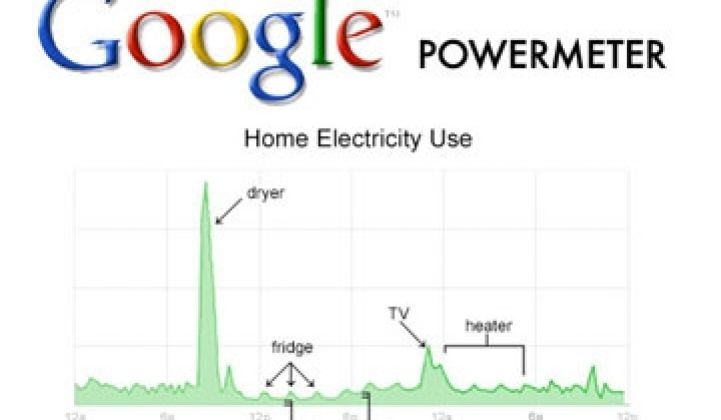Now any smart thermostat can link into PowerMeter.
Google has opened up the application program interface (API) to its household power management tool, a move that will make it much easier for home networking vendors to build links into their products that connect back to PowerMeter. AlertMe from the U.K. and The Energy Detective both make PowerMeter-energized products, and Google has been seeking more partners -- but PowerMeter is hardly a household word yet.
Putting out the APIs is the equivalent of putting PowerMeter on autopilot. The terms are public and straightforward; vendors then choose whether or not to adopt them. And vendors generally adopt the popular APIs. It helps reach a broader audience and the software vendors ultimately often start doling out market development dollars.
Google, Microsoft, Intel and others have all launched efforts to control how consumers and businesses monitor and analyze their energy consumption. Why the rush? Neither Google nor Microsoft will charge consumers for PowerMeter or Hohm. However, advertisers will likely pay both companies for the opportunity to hawk energy efficiency services and other energy-related products to consumers who use their respective consoles. Both companies will also mine the data (after it has been scrubbed to protect privacy) to utilities. Don't worry about a loss of dignity or privacy: you'll get a coupon for ten percent off on a new set of storm windows.
Intel, meanwhile, wants to sell chips into thermostats. Last year, Intel began to gripe about how homes were largely analog, often a prelude to a product push. Then at CES, CEO Paul Otellini showed off a prototype management console. Intel has already licensed it for free to an Asian contract manufacturer.
But will it work? Intel's strategy makes a lot of sense. These devices will need processors and Intel can pop out chips at a regular pace at low prices. But thermostats and washing machines won't need extremely high levels of programmability. So Intel will have to compete against ARM and others.
Google and Microsoft, however, have created business plans that require at least some level of customer interest and engagement. Can energy efficiency and home management engage the interests of consumers over a sustained period. Put it another way: when was the last time you reset your programmable thermostat? Maybe the companies like Tendril, EcoFactor and Silver Spring Networks that are more focused on systems that will let consumers forget about home management have a better idea.



